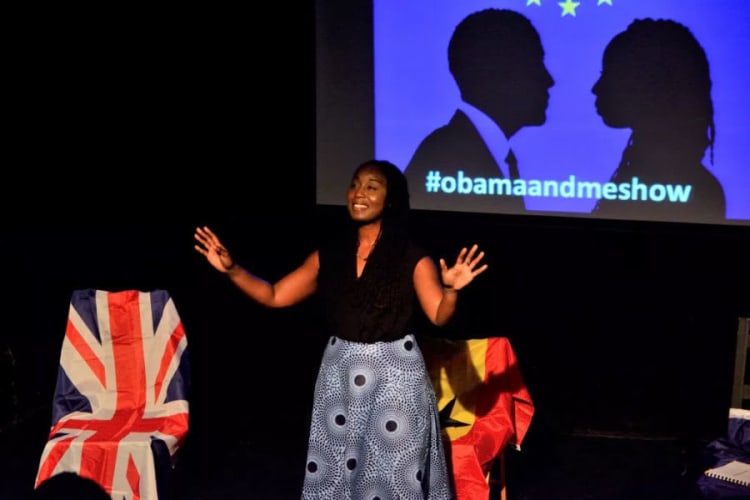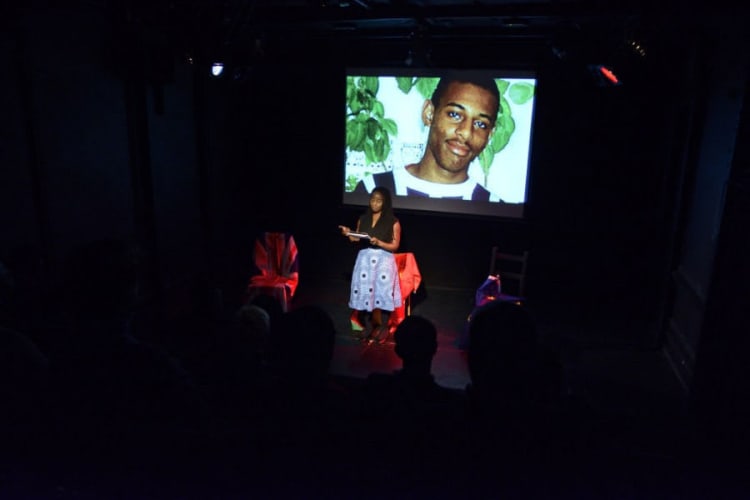Sylvia Arthur is a successful black woman.
She was a regional communications manager for Labour’s healthy living campaign and later a communications consultant for a European Union group working on the EU’s Freedom of Movement.
It was a time when things seemed to be changing for black people as America elected its first black President.
Those were years of hope when Obama was fulfilling the American Dream and she was fulfilling the European Dream.
In an engaging and often humorous performance, Sylvia Arthur tells her story, occasionally asking audience members to read quotes. At times, the conversational script feels almost poetic in its carefully turned phrases.
Obama’s father, like her own father, was born in Africa and encouraged to take up educational opportunities in a more developed country.
She recalls her trip to Istanbul, where local vendors had been irritatingly calling to her and black friends using the names of famous black women such as Whitney Houston and Janet Jackson when someone shouted out: “Hi, Michelle Obama!”
This was a name they didn’t mind being called since Michelle in their eyes stood for intelligence and strong character. They all carried an inner Michelle.
But, despite her success, Sylvia found she was constantly bumping up against racism in her EU work.
In the Brussels office, a colleague thought it funny to claim “he couldn’t see me in the dark”, and a PA, impressed at the way she spoke on the telephone, asked where she learned “to speak such good English?” to which she replied, “everyone from England speaks good English.”
She got a particular shock on an EU visit with a white male colleague to Bulgaria when an official said they only let her in because she was the girlfriend of the white man (which she wasn’t).
Even Brussels, “a grey city draped in flags”, felt uncomfortable given it denied equal rights to its thousands of African residents who lived there as a result of Belgium’s brutal colonial history.
She was astonished one day when a colleague said she didn’t believe Sylvia was as old as she claimed “because a lot of Africans don’t know their age.”
The audience is shown a notorious EU commercial from 2012 promoting the Union which depicts an attractive young white woman alone in a huge, empty warehouse being suddenly surrounded by three aggressive men: one a black man with dreadlocks, another a man from the Middle East and a third from China.
Calmly, the white woman splits herself into twelve identical white women to remove the threat.
Perhaps not surprisingly when the referendum takes place, Sylvia is tempted to vote leave but casts her vote for remain. All the same, the hope of the Obama years had soured and she comments that “personal progress” was taking place at a time of “collective decline”.
In a very moving section, we hear the strict advice on how to succeed given to black youth as the pictures of black youths killed, from Stephen Lawrence to Trayvon Martin and Sandra Bland, are projected onto a back screen.
And, as the hope of Obama is replaced by the frightening figure of Trump, Sandra urges us to fully exercise the freedoms we still have to shape what happens next.


